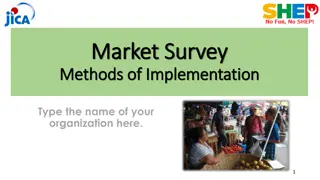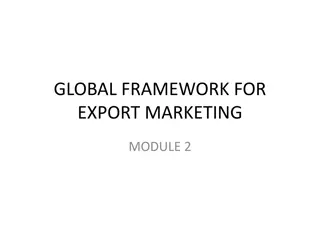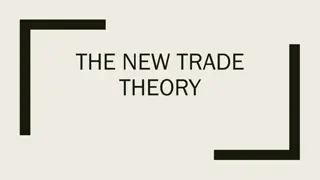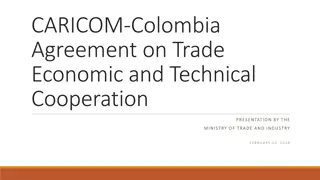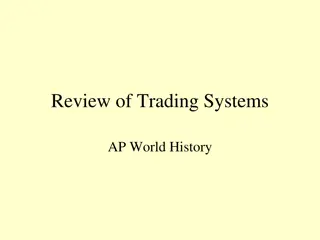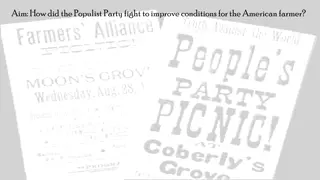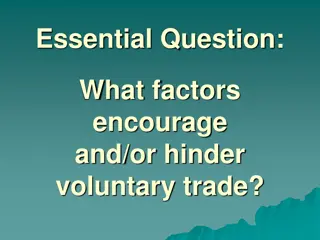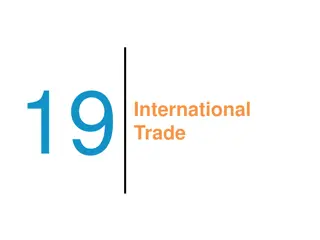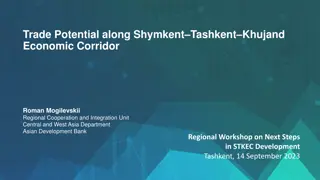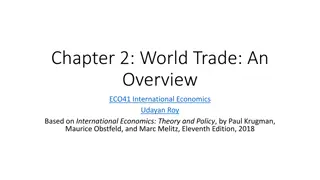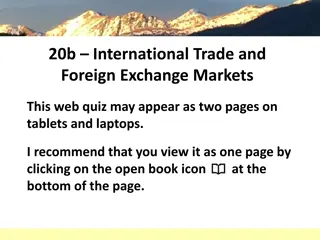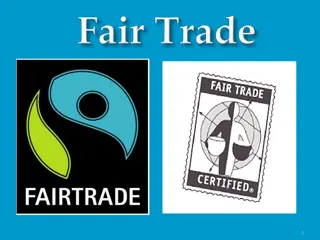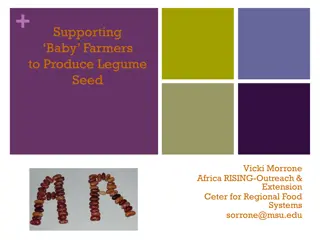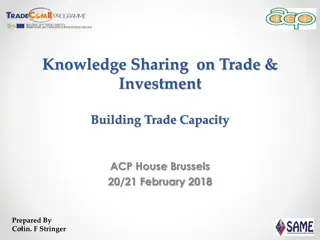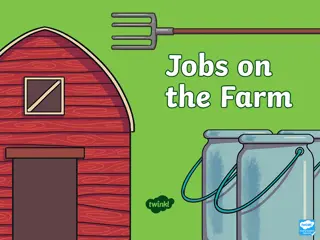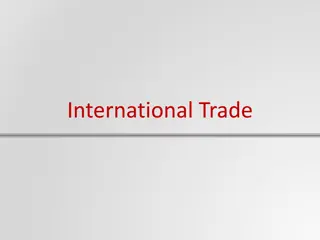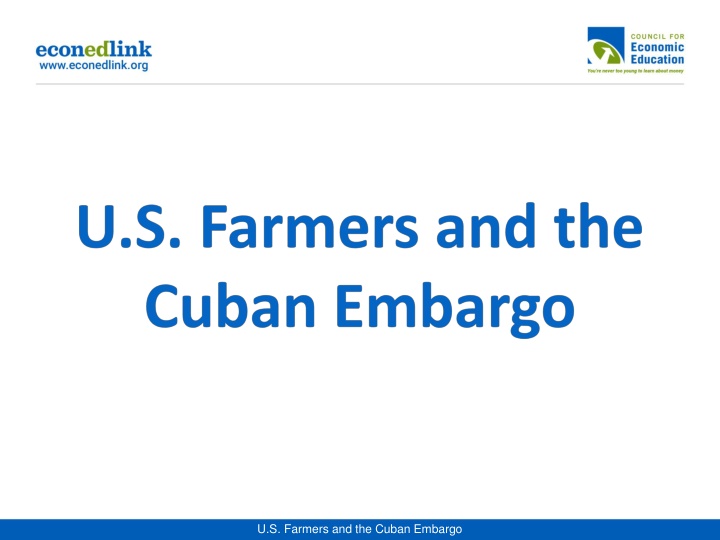
U.S. Farmers and Trade Barriers: Understanding Impacts
Trade barriers such as tariffs, quotas, embargoes, and currency devaluation can have various impacts on producers and consumers. Governments impose these restrictions for reasons like raising revenue, protecting local industries, and punishing adversaries. Explore the reasons behind these barriers and the resulting effects on the economy and international relations, focusing on the Cuban Embargo and its implications for U.S. farmers.
Download Presentation

Please find below an Image/Link to download the presentation.
The content on the website is provided AS IS for your information and personal use only. It may not be sold, licensed, or shared on other websites without obtaining consent from the author. If you encounter any issues during the download, it is possible that the publisher has removed the file from their server.
You are allowed to download the files provided on this website for personal or commercial use, subject to the condition that they are used lawfully. All files are the property of their respective owners.
The content on the website is provided AS IS for your information and personal use only. It may not be sold, licensed, or shared on other websites without obtaining consent from the author.
E N D
Presentation Transcript
Play this Kahoot! to see if you can identify different types of trade barriers. (https://create.kahoot.it/details/trade-barriers/dbe0a0c0-b7aa- 456d-9379-013f3ce6d392) U.S. Farmers and the Cuban Embargo
Tariff: a tax imposed by one country on the goods and services imported from another country. Quota: a government-imposed trade restriction that limits the number or monetary value of goods that a country can import or export during a particular period. Embargo: a government order restricting commerce with a specified country or the exchange of specific goods. An embargo is usually created as a result of unfavorable political or economic circumstances between nations. It is designed to isolate a country and create difficulties for its governing body, forcing it to act on the issue that led to the embargo. Currency Devaluation: the deliberate downward adjustment of the value of a country's money relative to another currency, group of currencies, or currency standard. U.S. Farmers and the Cuban Embargo
Why do governments impose trade barriers that restrict trade? Are they always good for producers and consumers? U.S. Farmers and the Cuban Embargo
Most common reasons: To raise revenue (tariffs) To protect local industries (quotas) To punish a political adversary (embargo) To make exported goods more affordable (currency devaluation) U.S. Farmers and the Cuban Embargo
Costs Less consumer choice Higher consumer costs Reducing economic efficiency Reduces competition Benefits Additional tax revenue Protect local jobs and workers Preserving national security Change behavior of adversaries U.S. Farmers and the Cuban Embargo
Who was Fidel Castro and when did he come to power in Cuba? A Cuban guerrilla fighter and revolutionary who led a group that successfully overthrew President Fulgencio Batista in 1959. List three things Fidel Castro did in 1960 to antagonize the United States. Nationalized all foreign assets in Cuba, hiked taxes on U.S. imports, and established trade deals with the Soviet Union. During which year did the United States officially announce its embargo against Cuba? 1962 What changed in the U.S.-Cuba relationship in 1977? U.S. President Jimmy Carter reached an agreement with Castro to resume a limited diplomatic exchange, allowing officials from the two countries to communicate regularly. The United States opened an interests section with a small staff in its former embassy in Havana. What did the Cuban Democracy Act of 1992 do and what major international event was it in response to? Increased U.S. sanctions on Cuba. It followed the collapse of the Soviet Union. U.S. Farmers and the Cuban Embargo
What did the Helms-Burton Act do to the U.S. s stance against Cuba? It tightened and codified the U.S. embargo against Cuba. Why was 2009 such a big year in U.S.-Cuba relations? President Obama eased restrictions on travel and remittances. This allows Cuban-Americans to send unlimited funds to Cuba and permits U.S. citizens to travel there for religious and educational purposes. What two events improved U.S.-Cuba relations in 2015? U.S. State Department removes Cuba from its list of state sponsors of terrorism. The United States and Cuban embassies, which had been closed since 1961, reopen. What two events increased the likelihood of improved U.S.-Cuba relations in 2016? The death of Fidel Castro and President Obama visits Cuba. What impact did the election of Donald Trump have on U.S.-Cuba relations? Trade relations took a step back as President Trump reinstated numerous restrictions against the Cuban government. U.S. Farmers and the Cuban Embargo
Assignment: Suppose you are a rice farmer in Arkansas who is looking to sell more of your product to consumers in new markets. Read https://thehill.com/blogs/congress-blog/economy- budget/415210-american-farmers-need-the-cuban-market. Write a paragraph summarizing why you agree or disagree with the author s point of view. U.S. Farmers and the Cuban Embargo
Have students identify one potential benefit to Cuban consumers and one potential benefit to U.S. producers if the two countries were to normalize all trade relations and the U.S. government lift its embargo. U.S. Farmers and the Cuban Embargo

